-
THE GREAT BUDDHA + (Huang Hsin-yao 2017)
HUANG HSIN-YAO: THE GREAT BUDDHA + (2017)

CRES CHUANG AND BAMBOO CHU-SHENG CHEN IN THE GREAT BUDDHA
Forbidden pleasures
Huang Hsin-yao's catch-all titled The Great Buddha is the most clever and witty film in this year's New Directors series so far and likely to remain so. For some reason it reminded me of the droll Mexican minimalist Fernando Eimbcke of Lake Tahoe and Duck Season, though really its emphasis on electronic game-playing and its well-thought-out nexus of religious hypocrites, crooked politicians, minor fat-cats and low-level losers is different; so is the self-reflective irony of the filmmaker introducing himself before th film starts to roll, and interrupting with commentary. Maybe it's the drollery and sympathy for underdogs that's the link with Eimbcke. Anyway the pleasure felt similar.
The dangerously scrawny Belly Button (Bamboo Chu-Sheng Chen) and bespectacled Pickle (Cres Chuang) are a perfect pair of loser buddies: they couldn't be more invisible, and that's why entering their imaginative world feels special and their quietly combative intimacy feels real. Pickle is the night security guard for a little factory that produces Buddhas, including one big one that's featured in the spectral final scene where it's the center of a cultish celebration. But it looks like a fly-by-night place. Do these guys have any life or friend than each other? Belly Button is a scavenger who lives in a shack. He reminded me of the father in Kurosawa's Do-des-ka-den. PIckle moonlights in a funeral band to help care for his aging mother. That his status matches Belly Button's is shown by his sharing girlie mags with sticky pages and receiving and consuming with only mild complaint partly frozen, expired bento meals dumped by convenience stores. Pickle at least has a job and a mother, but as Maggie Lee points out in her review for Variety written at Taipei, Belly Button gives himself a sense of status by bullying or looking down on Pickle for his naivete about most things and general nerdiness.
Into this yucky world comes a dangerous entertainment: watching the factory boss' dashcam memory card images from his new Mercedes, Belly Button's idea of entertainment to fill in for a broken TV. Now this is a medium new to feature films. But it turns out to be a great one. The images of The Great Buddha proper are black and white; the dashcam ones are in lurid digital color. The metaphor is one aspect, the rest is sheer visual pleasure. The trouble for the surreptitious snoopers is most of the memory card videos are nothing. But a few times they hit pay dirt.
Pickle's boss Kevin Huang (Leon Dai) is sleazier and more evil than they had imagined. The dashcam card shows him in, shall we say, compromising positions with several women, not his wife.
Another aspect, a subplot that's not insignificant but never gets in the way of the loser drama, is the big Buddha, and the cult that visits and the annoying woman who critiques the Buddha, on which her group is to take delivery. And some appearances of local officials, throwing their weight around.
The new formats, including the self-reflective voiceover, the dashcam adventure, and the passages increasingly depicting boss Huang as a creepy loser who yet deserves some sympathy for the hairpiece toupee he always wears, are the highpoints of this inventive and droll production that's none the less for being an expansion of a prize-winning short. I must rely on Maggie Lee for the information, not a surprise however, that the two underdogs' dialog reps "vulgar banter" that's "wickedly funny", and that in Huang's personal voiceover, "choice use of puns and obscenities in Taiwanese dialect is a source of constant delight as well as insight into his protagonists’ inner thoughts." The "+" in the English title is a reference to the iPhone6, she also explains. I am sure much more is to be gleaned in repeated watches of this thought-provoking and ingenious film, which not surprisingly is heralded by Lee as the best in a year of resurgence of a recently dormant Taiwan cinema, and the big prizewinner at the local Oscar equivalents.
The Great Buddha +, 104 mins, in Taiwanese and Mandarin, debuted at Taipei, and was subsequently included in ten or so other international festivals including Toronto, Busan, Tokyo and Palm Springs, opening on the Internet in Canada and the US in Feb 2018 after Jan. limited releases. Screened for this review as part of the MoMA-Film Society of Lincoln Center 2018 New Directors/New Films series.
.
ND/NF showtimes:
Tuesday, April 3, 8:45pm [MoMA]
Wednesday, April 4, 6:30pm [FSLC]

Last edited by Chris Knipp; 02-24-2019 at 01:05 PM.
-
BLACK MOTHER (Khalik Allah 2018)
KHALIK ALLAH: BLACK MOTHER (2018)
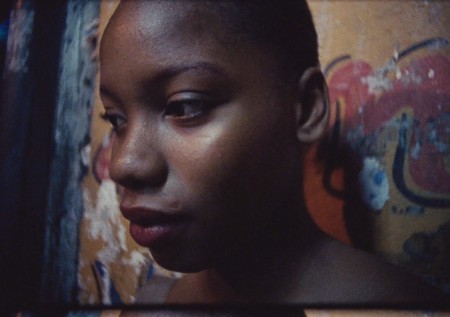
Jamaica in a visual tone poem
Khalik Allah's short documentary feature is in the nature of a long poem of cross purposes about Jamaica, land of the director's maternal grandfather, with many motion picture snapshots of local people from different times accompanied by multiple voices speaking about life, motherhood, God, Rasta and ganja, and other germane matters but not specifically lined up with the faces we see. There are country people and city people, prostitutes and holy man, though the overwhelming focus is on the poor. There is black and white and color, Super-8mm, HD video, and Bolex footage, there is meditative thought of death and it all ends with the birth of a child, the whole being organized into three trimesters following the pregnancy. This is not the kind of documentary that gives you specific information, but it may lead you to fall back on your own related memories in a more personal way. It is highly evocative, but negotiating the non-correspondence of related images can also ultimately be wearying.
According to Christopher Gray of Slant, writing from the True/False documentary festival in Columbia, MO, this film follows quite logically from Allah's first, which used the same technique of germane but out-of-synch images and testimony in an impressionistic montage, the 2015 Field Niggas being focused on drug addicts, prostitutes, and cops in a single intersection in Harlem. Gray adds that Beyoncé's Lemonade film works similarly, and Allah was its director as well.
Black Mother, 75 mins., was screened for this review as part of the MoMA-Film Society of Lincoln Center 2018 series New Directors/New Films.
ND/NF showtimes:
Wednesday, April 4, 6:00pm [MoMA]
Saturday, April 7, 6:00pm [FSLC]
Last edited by Chris Knipp; 02-24-2019 at 01:09 PM.
-
DJON ÁFRICA (João Miller Guerra, Filipa Reis 2018)
JOÃO MILLER GUERRA, FILIPA REIS: DJON ÁFRICA (2018)

Picaresque ramble of a party boy searching for his father
João Miller Guerra and Filipa Reis are some more documentary filmmakers who've turned to a fiction feature based on their own material, and the focus of their last non-fiction effort, a young man of Cape Verdean origins born in Portugal. There are several classic themes wrapped up in this easy-going movie, which is more on atmosphere and the occasional colorful character than interesting plot twists. Yes, this is a bit of a picaresque tale, even an Odyssey - its hero is seduced from time to time by pretty women and intoxicating drink - and he gets seriously sidetracked and relieved of his wallet. Miguel (Miguel Moreira), also known as Djon África (Djon pronounced "John") or Tibars.
He's using electric clippers on the sides in the opening scene, leaving only some thin, stylish dreadlocks, making his look halfway between rasta and rap. Miguel is a big, easygoing school dropout of 25 with jutting lips and big gap teeth, and he's strong to be hired on construction sites, where he makes money he saves up for his first trip to the Cape Verde island archipelago off the West Coast of AFrica, to find his father, whom he's never seen. Even on the plane, in sequence that is half fantasy, he is surrounded by pretty Cape Verdean young women, and freely imbibes grogue, the strong national drink.
This is the pattern, and since he speaks the language and moves freely, Miguel slides right into the sunny world he meets. A big party leads to being fleeced by the pretty ladies, who disappear next morning. Eventually he winds up hired on a ferry boat by a tough old crone puffing a ciggy who keeps an old cow and some goats up in the hills. She hires him to do the work, in exchange for board, but no WC, because there ain't none. There is a gentle magic in these sequences, and they provide an engaging picture of a pleasant place with good-looking people, however crooked the government, as they tell him, may be.
There's no more to it than that.
Written by Pedro Pinho, director of The Nothing Factory, also playing in the New Directors festival.
I wonder if anyone would think of Pedro Costa, of Colossal Youth (SFIFF 2007) and other films, the preeminant film chronicler of Cape Verdeans in Portugal. A darker, more realistic picture comes from him, perhaps.
Djon África, 95 mins., debuted at Rotterdam, Jan. 2018, in the 2018 Hivos Tiger Competition, and bought for international distribution before that by the Paris based Still Moving . It was screened for this review as part of the MoMA-Film Society of Lincoln Center 2018 New Directors/New Films series.
ND/DF showtimes
Wednesday, April 4, 9:15pm [FSLC]
Friday, April 6, 6:00pm [MoMA]

MIGUEL MOREIRA
Last edited by Chris Knipp; 03-20-2018 at 05:31 PM.
-
GOOD MANNERS (Marco Dutra, Juliana Rojas 2017)
MARCO DUTRA, JULIANA ROJAS: GOOD MANNERS/AS BOAS MANEIRAS (2017)
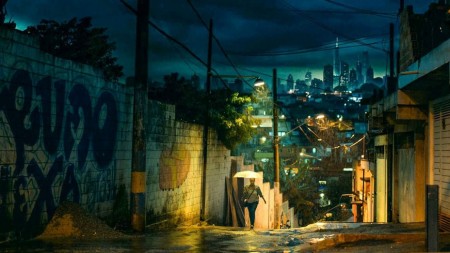
Lesbian love and lycanthropic childbirth in São Paulo
Well, this is a humdinger, and on top of being a lesbian vampire-werewolf movie with social overtones, eye-candy Brazilian mise-en-scene and São Paulo locations, it wants to be a musical, and probably would make a darn good full-fledged one, given half a chance.
The movie, arguably a little long, is in two self-sufficient parts, before and after the childbirth, which is the first big scene-stealing special effects display, to be followed by plenty more.
The story initially explores the unexpectedly intimate relationship across race and class that develops between the rich white pregnant socialite from the country Ana (Marjorie Estiano), whose unplanned pregnancy and refusal to lose it has exiled her from her family in a spacious (and festively decorated) condo in the center of São Paulo, and Clara (Isabél Zuaa) the handsome, cropped-haired black woman, trained as a nurse, but with an uncertain past, whom she hires as a nanny and housemaid. As the two women grow closer, their rapport turns first affectionate and intimate, then sexual, then more fraught and complicated, and in the end shockingly macabre.
It's hard to know where to begin, and this movie, blending art house and genre features in a very sui generis manner, is too good to want to spoil it by revealing many details. The first thing that charms, aside from the two attractive ladies and their somehow inevitable sympathy, is how great things look. Ana's condo is decorated in an understatedly fantastic manner. Outside, the big modern buildings of São Paulo glow deliciously. Then there is the glow of the night skies, and the great big moons. Dutra and Rojas are not into drabness. Everything is a visual delight.
I don't think we've ever gotten sympathetically close to a young boy who's a werewolf before, so you get concerned about him. This no doubt is why Neil Young, of Hollywood Reporter,* writing from Locarno, said this movie's "most obvious antecedent" is "Tomas Alfredson's 2008 Swedish kiddie-vampire smash Let the Right One In." As Joel, Miguel Lobo is a sweet, delicate kid, whose fur pelt that time of the month seems an embarrassment. There is another key support character in Clara's harmonium playing, singing landlady Dona Amélia (Cida Moreira). Everything here seems unique and inevitable, including the dedicated songs, some of them duets. You kind of want to see this again - soon - and with friends.
Young thinks this needed to be trimmed truly to compete with Alfredson's film. And Good Manners indeed has structural complications, maybe irreparable ones. But it doesn't matter. It's still original and a delight.
Good Manners/As Boas Maneiras, 135 mins., debuted at Locarno, and was included in an unusually large number of festivals - over forty. Screened for this review as part of the MoMA-Film Society of Lincoln Center 2018 New Directors/New Films series, It is a Distrib Films US release.
ND/NF showtimes:
Thursday, April 5, 8:30pm [MoMA]
Friday, April 6, 8:45pm [FSLC]
_______
*Jay Weissberg gives a fuller account of the film in Variety.
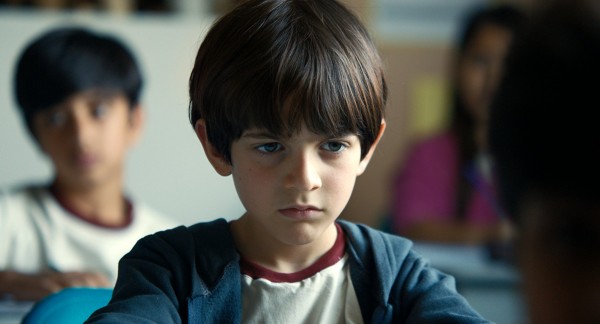
MIGUEL LOBO
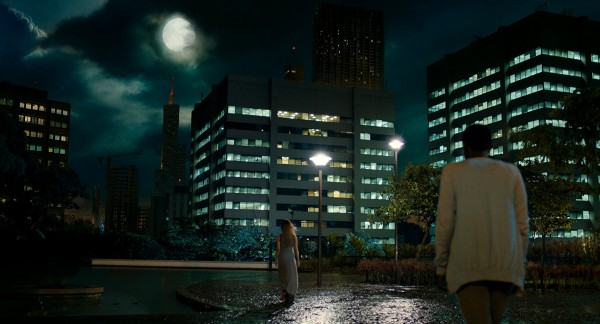
Last edited by Chris Knipp; 04-28-2018 at 10:39 PM.
-
NOTES ON AN APPEARANCE (Ricky D'Ambrose 2018)
RICKY D'AMBROSE: NOTES ON AN APPEARANCE (2018)

BINGHAM BRYANT IN NOTES ON AN APPEARANCE
Gone boy
Ricky D'Ambrise, who wrote and directed this short feature, is evidently part of a little group of young people in Brooklyn involved in making literate, talky, low-keyed films which flirt with themes of mystery and the occult. We note the common thread among others of Bingham Bryant, who co-directed For the Plasma a couple of years ago and plays the young man, David, who disappears in this one. Bryant also produced a 2016 film about two Argentinians in New York called Dear Renzo. There are links with Alex Ross Perry, and the credits cite a number of New York film critics, as well as Film Society of Lincoln Center programmer Dennis Lim, who chose the present film for inclusion in the New Directors series that gives it its debut. New York movie writer Glenn Kenny plays a minor role as a morgue assistant.
Notes on an Appearance is more about the disappearance of a young unemployed man from Chappaqua, NY, called David (Bryant), who at one point was in Milan and sent some postcards from there. There is some old footage. There are many shots of tables with snacks or breakfast. Given that this is a film by and about young people, and caffeine has never been in higher regard with this demographic, coffee is a constant item in these shots. There are also shots of diary entries by David, as well as his cards, and rather arcane references to a controversial political theorist called Stephen Taubes, an elaborate creation of this film, whom David has been hired to gather research on for a biography of Taubes by David's friend Todd (Keith Poulson), who has a fellowship that allows him to work on it full time.
Taubes is made to seem more real than David, with severalTimes news articles about him shown, a photograph, and an obituary, and even an article about him by Louis Menand in The New Yorker. And there is a dryly staged meeting of three young literary critics before a small audience. D'Ambrose likes to create or recreate his world at one remove. Taubes' reputation and influence after his demise is nearly as important as the physical disappearance of David.
The invented documents are "paper" rather than electronic, ostensibly because one of the characters most concerned by the disappearance is a doctoral candidate who's an archivist, gathering material for somebody else who is writing a biography of Taubes. But it's also true that "paper documents" probably have a quaint and appealing historical flavor for twenty-somethings weary of their own tiresome Internet- and device-driven generation. D'Ambrose recognizes there's something more genteel and pleasant, perhaps, about a world free of smartphones and such, even though this film's world is the present.
The characters speak in little scenes of dialogue shot up close with blank backgrounds. The action is seen as being an arcane "search" for the missing David, but the process lacks urgency, and the solution to the mystery doesn't come through the young clique's efforts.
This is a "minimalist" film, its spare style making a virtue of the necessity of a very low budget. It's an exercise in style, with something a little European about it, a hint of W. G. Sebald, perhaps; something intellectual, something that avoids the visceral or genre or emotional, with its dry invented worlds of a vanished young man and invented public figure. There is a delicate aesthetic, with the academy ratio images in pale colors and a little fuzzy at times. Greg Cwik of Slant notes that this film falters when it comes to the disapparance of David. Despite his use of a haunting, broody soundtrack, D'Ambrose's approach is too meditative and too far from basic genre techniques to generate tension. What he's best at (as Cwik says) is playing thoughtfully, unhurriedly, with locations and objects. Sometimes, though, this film seems to be grasping for an elegance and complexity of style D'Ambrose, despite reportedly some very interesting shorts under his belt, still lacks the means or the chops to achieve. Notes on an Appearance is valuable for what it seeks to be rather than for what it is.
Notes on an Appearance, 60 mins., showed in the Forum section at Berlin Feb. 2018 and also in the Spirit of Fire Film Festival in Russia. It was screened for this review as part of the MoMA-Film Society of Lincoln Center 2018 New Directors/New Films series, its North American premiere.
ND/NF showtimes:
Friday, April 6, 6:30pm [FSLC]
Saturday, April 7, 6:30pm [MoMA]
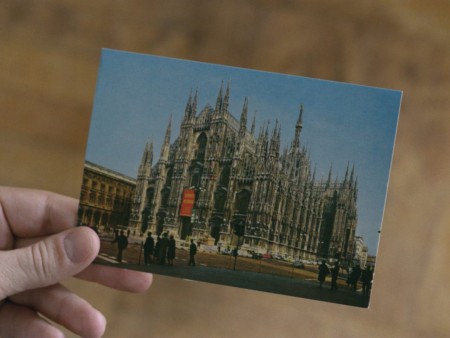
Last edited by Chris Knipp; 02-24-2019 at 01:19 PM.
-
THOSE WHO ARE FINE (Cyril Schäublin 2017)
CYRIL SCHÄUBLIN: THOSE WHO ARE FINE/DENE WOS GUET GEIT (2017)

A chilly world of security, and scams on the elderly
The Swiss don't normally make movies. This is a cold gray one, but it has a central theme that's human. It casts a light on despicable scams on older people, robbed of money. Two central sequences, all set in Zurich, focus on a young woman employed at a call center selling insurance or Internet service by day who uses her phone skills in her own time to bilk old ladies, claiming to be their granddaughter in desperate need of quick cash. Then she comes to collect it in a park pretending to be the relative's friend acting in her stead. The first time she succeeds. The second she has been tracked by police working with the old lady, and they take her away.
But in between is a lot of dry footage of security guards, and such, and a man acting as the gatekeeper to a bank, the other to an insurance company. And the call center, of course, and all this talk we hear is boring and borderline nonsensical. That's the point, I guess: to hint, partly, at the sheer alienation of modern life, but also at how many of the everyday details of money and identity and corporate gatekeeping are wearying numerical garbage everybody has to negotiate.
The spirit of Michael Haneke hovers over this short feature, but it hasn't the resonance or depth of characterization of his work; though its chilly style is accomplished and unified, it seems more like a needlessly, if skillfully, expanded short.
Which it may be. The 34-year-old Schäublin, his bio says, studied Mandarin and Film at the Beijing Central Drama Academy, which sounds pretty brave, and then attended the German Film and Television Academy Berlin (DFFB). Last year he and Silvan Hillmann founded the production company Seeland Filmproduktion GmbH. This first feature is an accomplished and promising one, if it seems somewhat in search of a unified shape. In Swiss German dialect. Jessica Kiang in her Variety review calls this a "clinically intelligent, laceratingly pessimistic feature debut."
Those Who Are Fine/Dene wos guet geit, 71 mins., debuted at Locarno Aug. 2017, receiving Special Mention from the Jury. Screened for this review as part of the MoMA-Film Society of Lincoln Center 2018 New Directors/New Film series.
ND/NF showtimes:
Thursday, April 5, 9:00pm [FSLC]
Saturday, April 7, 1:45pm [MoMA]
Last edited by Chris Knipp; 03-21-2018 at 05:36 PM.
-
THE NOTHING FACTORY (Pedro Pinho 2017)
PEDRO PINHO: THE NOTHING FACTORY/A FÁBRICA DE NADA (2017
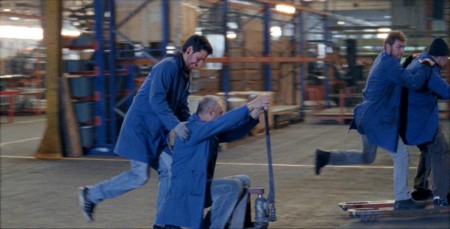
Labor dispute at an elevator factory outside Lisbon comes to life - almost
Portuguese documentary filmmaker Pedro Pinho's three-hour feature - with musical numbers toward the end - might be the most interesting failure of the year. Though it's won festival prizes, regular audiences won't have the patience for it, nor should they, because it's an experiment that's overong, its handling of issues of capitalism and collective factory ownership still left nebulous even after endless discussion.
But the topics get a chance to breathe, and then some, and given their complexity and importance, that's a good thing. Ultimately how this movie was made and why are more significant than the unwieldy result. You could build a film course around it: you'd just need to make clear to your students that this isn't an example of a good film, just one that's fruitful to study and compare with cinephile favorites like Ken Loach and Miguel Gomez, Loach being germane for the worker-centric social realism, Gomez for the documentary-fiction element and focus on Portugal's economic crisis. And this reps a rare example of a neorealist musical - at the end, that is, mixture of genres being another useful subject for film study.
Pinho bases his story (the title drawn from the play De Nietsfabriek by Dutch writer Judith Herzberg) on the Fateleva (Otis) elevator factory in Portugal, which was actually taken over by the workers and run collectively from 1975 to 2016. He uses actual workers, rather than professional actors. But in his version, the worker takeover begins in the present time. The owners try to seize the assets, and the workers block them.
They have no union, as such, but they have solidarity, and a creepy Human Resources lady sent in to try to lure key workers into a buyout of individual jobs fails. Then, the question is how to proceed. They get a lawyer, to deal with the cops. Many heated and lengthy discussions follow.
Much of the film is occupied with debates among the workers, and others, about how to proceed. There is - troublingly, Peter Bradshaw of the Guardian feels, and I'd agree it jars - the occasional self-reflective onscreen appearance of a film director as a character, telling the non-actors how to go, do it again, make it simpler and more basic this time, things like that.
There is a lengthy debate of capitalism and marxist theory re factory takeovers mostly in French, why, we're not told; but that discussion is like plunging into a searching economics seminar that takes as its scope the whole future of human endeavor. It's thought-provoking in a way that a neater scene with tighter dialogue could not be, and it's a key example of how this movie is fascinating and instructive while still unmistakably a dramatic failure.
Most of the actors, though vivid individuals, whose feelings we are given time to feel, don't get depicted in depth. The exception is Ze (José Smith Vargas), his adopted son, nicknamed Mowgli, and his girlfriend Daniele (Daniele Incalcaterra), who's Brazilian. Them we follow home. And they, especially when Mowgli is involved, truly come to life.
But one might compare this to Laurent Cantet's 1999 film Human Resources, about a factory strike in France, in which there's a wrenching, incredibly dramatic and human and specific conflict that develops between a working class father and his educated son who's just joined management staff. Pinho is too wound up in the improvised general debates to think of developing the ideological and practical conflicts in terms of individual personalities.
Here is a proposal: the natural perceived length of a movie is an hour and a half to two hours. If you make one that's longer, a sense of protracted time will be produced in the viewers. In this case, the three-hour length and the series of long drawn-out discussions among the workers has the effect of making the action seem real-time. But that effect becomes unwieldy, because you can't convey the series of steps required for a worker takeover of a factory in lengthy real-time segments. Hence Pinho's Nothing Factory, though absorbing for long stretches, ultimately gets bogged down and goes nowhere - except into song.
The Nothing Factory/A Fábrica de Nada, 177 mins., debuted at Cannes MAY 2017 and won the FIPRESCI Prize; at about 20 other festivals including Munich, Toronto, Vienna, and Busan. Screened as part of MoMA and the Film Society of Lincoln Center's New Directors/New Films series for 2018.
ND/NF showtimes:
Saturday, April 7, 2:00pm [FSLC]
Sunday, April 8, 4:30pm [MoMA]
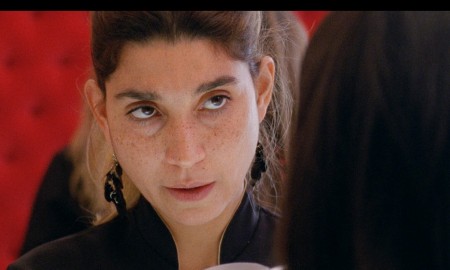
Last edited by Chris Knipp; 03-21-2018 at 10:20 PM.
 Posting Permissions
Posting Permissions
- You may not post new threads
- You may not post replies
- You may not post attachments
- You may not edit your posts
-
Forum Rules






 Reply With Quote
Reply With Quote











Bookmarks